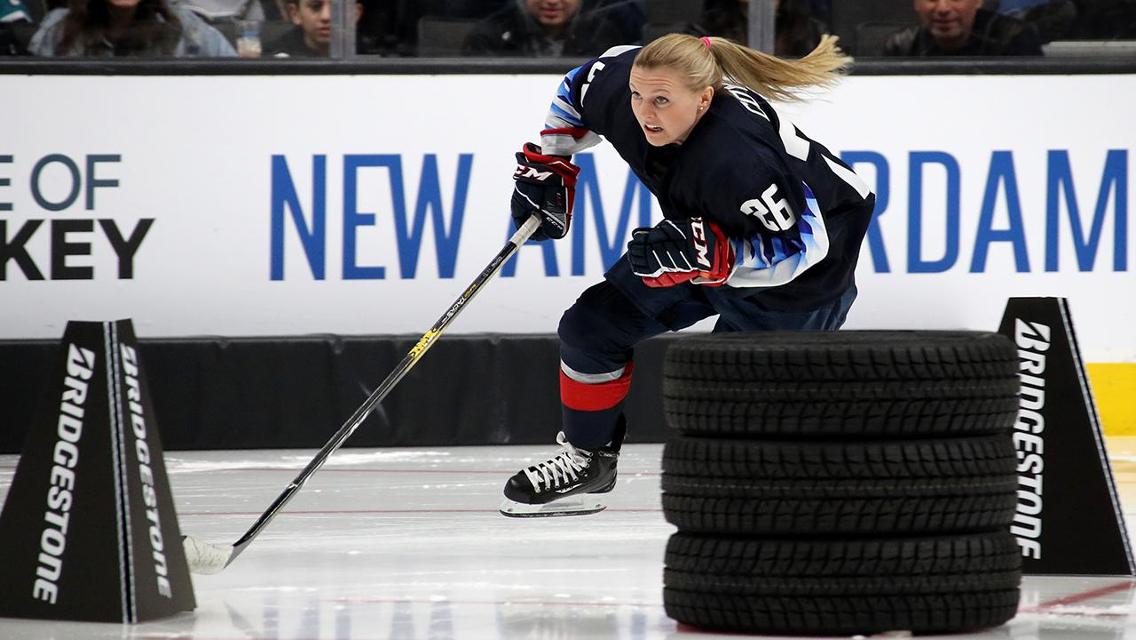Being a both high performance female hockey coach and a physiotherapist has provided me with interesting view of sport and an equally unique perspective as a therapist. Wearing both hats, I look to enhance the performance of my athletes and patients. I have found in my experience the approach to ‘enhancing performance’ can be very different between roles. Not many coaches have the perspective of a therapist; likewise, not many therapists have the perspective of a coach.
As a coach, there’s nothing worse than watching any player get injured or have to take time away from sport due to an injury. I was once in that position as an athlete and it’s a very challenging thing to go through at any age or any level of competition. As a therapist, my job is to help rehabilitate an injury and get that person ‘back to play’ – whatever that might look like for each individual. As a coach, I always inform my athletes to take care of their bodies but there’s also a role I play to instill competitiveness, drive and hard work in them that might push them to their limits and beyond. The discourse of sport has taught athletes that that means to “suck it up” or that it’s “normal” to feel pain and “push through” an injury. It’s just part of being an athlete, right? As a therapist, I know this couldn’t be more wrong.
So now what? The first step is to bring awareness into sporting arenas, especially with kids. It’s just a game and they are just kids. As coaches, parents, family and friends, it’s important we are watching for signs an injury may have occurred. Did you see them get hurt? Are they playing tentatively or favoring something? Are they complaining something hurts? Are they skipping shifts? Does it look like there’s an injury (i.e. bruising, swelling etc.)? As an athlete, you need to pay attention when your body is telling you something is wrong.
If an injury has occurred, the next step is figuring out where to go. There are many options and professionals that can help including doctors, physiotherapists, massage therapists, etc. If you have a small injury, it may be okay to give it a day or two to heal. However, if you are unsure, the safest bet is to get it checked out. Always seek medical help if there is a significant injury or impact to the head or neck, suspected broken bones, change in consciousness, and significant or persistent pain. If you’re not sure, it’s worth getting it checked out. When it comes to athletes and kids in sport, it’s better to be safe than sorry.

Looking back on my career as an athlete and now thinking as a coach and educated as a physiotherapist, I wish I had spoken up about more injuries or dealt with them sooner to avoid missing as much time as I did or playing below my potential. Most coaches don’t even know their players are injured and if they don’t know, or parents don’t know, they can’t help. It’s always good to take each injury seriously and to rehabilitate it properly so you get back to where you are performing your best. It doesn’t mean every injury is a trip to the emergency room but it does mean you respect your body and respect what it’s telling you – any pain is not normal pain. Communicate with your coach, trainer, therapist, or parents. Seek advice from the appropriate medical professionals as necessary. If you’re not sure who can help, call and ask! There are many great resources out there and many people that are eager to help. As physiotherapists, there are not many injuries we cannot help to treat – and it doesn’t always mean you have to stop training or playing! We are always eager to help everyone from the non-athlete to the recreational or high performance athlete perform his or her best and stay in the game!
